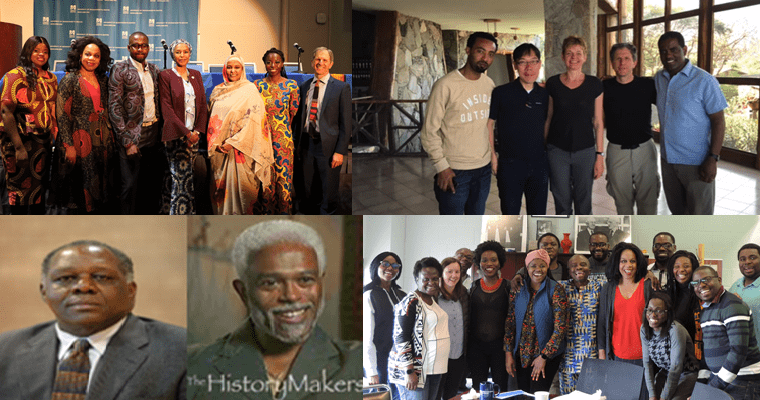Written by: Associate Dean and Professor Rita Kiki Edozie, PhD; Balkissa Daouda Diallo, PhD Student; Ojemire Daniel Benjamin, PhD Student; Dennis Jjuuko, PhD Student
Introduction
Unlike its peer institutions in Boston – Boston University, Harvard University – until May 2018, the UMass Boston had no formal African Studies program. This is true despite the fact that the university’s majority-minority student base also boasts of a vibrant African immigrant, African international, and Cape Verdes student population, several doctoral students engaged in advanced African studies research, and a dynamic cohort of teacher-scholar interdisciplinary Africanist faculty. Be that as it may, while the Africa Scholars Forum (ASF) at UMass Boston, whose goal it is to achieve a formal African Studies program for the university, is only two years old; African studies programming, research, and teaching at the university is deep and expansive across campus and spans more than three decades in existence.
Included among the study and research of Africa’s array of offerings are an Africana Studies department that offers introductory courses on African culture and literature, study abroad programs in South Africa, Cape Verdes, Togo, and Senegal; and a center of African, Caribbean, and Community Development (CACCD) that delivers dynamic collaborative research and projects in West Africa in collaboration with the Boston-based West African Research Association (WARA). There are also specialized research programs such as the Integrative Graduate Education and Research Traineeship program, (IGERT) as well as a rich cohort of faculty Africanists and graduate students, including doctoral, students conducting advanced research and scholarship on critical topics of African affairs. These decentralized though rich and dynamic presences of African Studies at UMass Boston informally come together through the ASF to inform a strong, emergent African Studies program at the university for the benefit of students, faculty, and off-campus communities.
To Continue Reading the Full Article: Click Here

